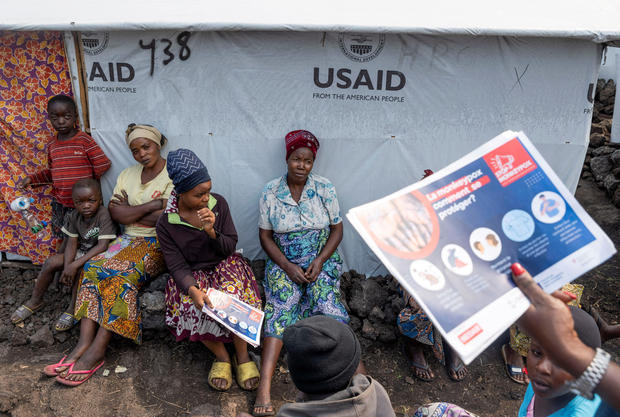
Mpox “not the new COVID,” World Health Organization says after declaring health emergency over Africa cases
Geneva — The mpox outbreak is not another COVID-19, the World Health Organization said Tuesday, because much is already known about the virus and the means to control it. While more research is needed on the Clade 1b strain which prompted the United Nations agency to declare a public health emergency of international concern (PHEIC), the spread of mpox can be reined in, the WHO’s European director Hans Kluge said.
In July 2022, the WHO declared a PHEIC over the international outbreak of the less severe Clade 2b strain of mpox, which mostly affected gay and bisexual men. The alarm was lifted in May 2023.
“Mpox is not the new COVID,” Kluge insisted. “We know how to control mpox and, in the European region, the steps needed to eliminate its transmission altogether,” he told a media briefing in Geneva, via video-link.
“Two years ago, we controlled mpox in Europe thanks to the direct engagement with the most affected communities,” he said. We put in place robust surveillance; we thoroughly investigated new cases contacts; and we provided sound public health advice. Behavior change, non-discriminatory public health action, and mpox vaccination contributed to controlling the outbreak.”
Advocates use end of Pride Month to warn about mpox
02:42
Kluge said the risk to the general population from the virus was low.
WHO declared an international health emergency on August 14, concerned by the rise in cases of Clade 1b in the Democratic Republic of Congo and its spread to nearby countries.
The WHO declaration came after the Africa Centers for Disease Control and Prevention declared the outbreaks of mpox (formerly known as monkeypox) a public health emergency, with more than 500 deaths attributed to the disease, and called for international help to stop it spreading.
“This is something that should concern us all,” WHO director-general Tedros Adhanom Ghebreyesus said at the time. “The potential for further spread within Africa and beyond is very worrying.”
More
More
Source: cbsnews.com